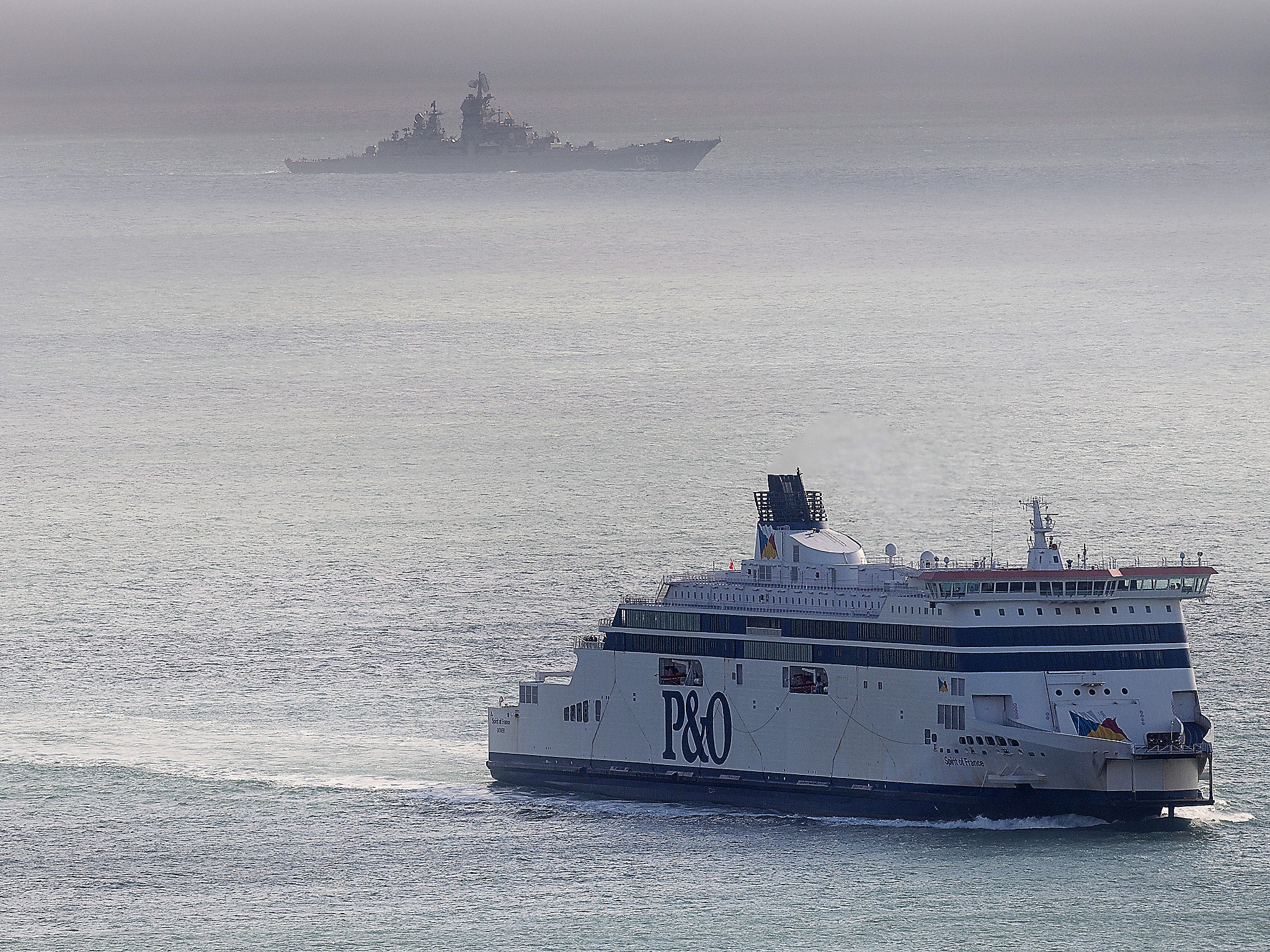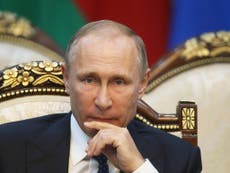Tensions are rising between Russia and the West – and the UK must accept its responsibility
Is it any wonder that Russia is boosting its air defences in Kaliningrad? They see the Western moves as aggressive and theirs as defensive. We see it the other way round


It is almost a quarter of a century since the Soviet Union’s collapse, yet over the past week or so you could be forgiven for forgetting that this global cataclysm had ever happened. The war of words over Syria at the UN General Assembly last month has escalated into a war of images, and fears are being stoked about Russia’s intentions.
This is not a new Cold War, however much that term is repeated. It is something quite different; more like a complete breakdown of trust, in which officials and sections of the media seem almost to be encouraging the idea that the Russia of today is irresponsible and rash to the point of precipitating armed conflict. Not a Cold War, but a hot war. And not in a third country, such as Syria – but with us.
Well, I have news for any sections of the British public who may be living in fear of an imminent Russian attack. There is a view, almost as widespread in Russia, that believes the same of the West – of the United States and its very junior partner, the UK.
I have spent the past three days at the annual meeting of the Valdai Club, which has now graduated into something akin to an international conference of Russia-watchers from around the globe. This year, as last, we met in the premier resort hotel built for the 2014 Sochi Winter Olympics. This year, as in previous years, there were lively discussions, not least about the future of Europe post-Brexit (and I admit to finding it strange to hear Russians, Germans, Chinese and Turks talking about the UK effectively over its head).
But the chief impression from this year’s meetings – which included lengthy question and answer sessions with the deputy prime minister, Igor Shuvalov, and the foreign minister, Sergei Lavrov, as well as many conversations with Russia’s answer to what we in the UK are now learning to call the metropolitan and intellectual elite – is that Russian distrust of the West at the international political level has rarely been higher, and that armed conflict, accidental or by design, is seen as a real possibility.
Even these “elite” Russians feel that, with a tiny number of exceptions, the Western world and its leaders are against them in a way that they find immediately threatening. They feel misunderstood and rejected. The foreign minister, the man who has become something of a fixture on television, standing alongside his US counterpart, John Kerry, told us several times during his 90-minute question and answer session that Russia was not being treated with the respect that was due not just to a great power, but to any country.
“We’re not looking for any nice gestures,” he said at one point. “We just want relations with the United States to be respectful. Every country deserves that.”
In other words, it is not just individual moves made by the West that Russia finds unacceptable – not just, say, the bombing of the Syrian troops that broke last month’s ceasefire and which the Russians do not believe was a mistake – but the West’s attitude, which Russia finds high-handed and patronising.
America’s claim to “exceptionalism”, a term that tends to be bandied about in the US more during election campaigns than at other times, was a recurrent theme.
One speaker, interestingly, drew a direct comparison between the way Russia felt it was treated by the West and how it was treated by China. The Chinese, he said – in relation to Central Asia – prepared the ground, consulted, kept Russia informed, so there were no unpleasant surprises, and was always open to cooperation. Now this may or may not be true, and even if it is, such an approach may not endure China’s continuing rise internationally. But it was a common view.
It is perhaps worth returning to the way Russia has been presented in the UK very recently to make the point. Russia is repeatedly described as an aggressive interloper in Syria, even though it is the only outside country that is there legitimately, in response to an invitation from the UN-recognised government. Russia has been blamed, without question, for the attack on the aid convoy which – we insist – is what scuppered the September ceasefire, even though culpability is still not at all clear. Accusations are made of “war crimes”, the Russians complain, before any investigation has been held into what actually happened.
Consider then the Russian naval flotilla, led by the country’s sole aircraft carrier, the Kuznetsov, which sailed through the English Channel (as was its right) in what was presented (by the British) as a “show of force”. The ships were on their way to the Mediterranean, where they would, it was confidently predicted, bolster Russia’s military support for Syria’s President Assad, and doubtless take part in the bombing of civilians.
A hue and cry was raised about Spain, a Nato member, agreeing to refuel the Russian ships at its North African enclave, Ceuta – something that had been done many times before. Wisely, the Russians withdrew their request before Spain had time to refuse it. But the whole episode encouraged Russians to ask who the US and others thought they were fighting in Syria? If they were serious about combating terrorist groups, then that was what Russia was there for, too. So why the nastiness, as they saw it, about refuelling?
Scarcely had the refuelling dispute been defused than the UK announced, for the second time, that it was sending tanks, drones and several hundred troops to eastern Europe. The combined Nato reinforcements to the region will constitute the biggest military build-up on Russia’s borders since the collapse of the Warsaw Pact. Is it any wonder that Russia is boosting its air defences in Kaliningrad? They see the Western moves as aggressive and theirs as defensive. We see it the other way round.
Presenting scenarios for where Russia and the West might go from here, a very senior Russian suggested that the most likely prospect for the immediate future was “cold defusion” – limited cooperation on individual issues that might, or might not, offer a basis for a rapprochement in the future (but not now).
Another of the most senior officials to address us was more forthright in his conclusion. “If you think a lean and hungry Russia will be ‘better behaved’, you are making a big mistake.”



Join our commenting forum
Join thought-provoking conversations, follow other Independent readers and see their replies